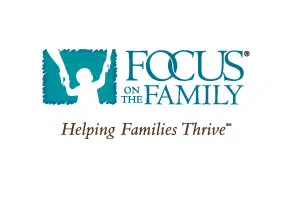By Alan Charlish and Marek Strzelecki
WARSAW (Reuters) – Poland’s move last week to ban Ukraine grain imports illustrates a wider dilemma the ruling nationalists face ahead of a tight election in October: how to counter pressure from the far-right over Warsaw’s approach to helping Kyiv in its war with Russia.
With the likely outcome of the Oct. 15 ballot far from clear, Ukraine has emerged as a topic on which the far-right Confederation can steal votes from the ruling Law and Justice (PiS) party, lowering its chances of winning a functioning majority by splitting right-of-centre Poles.
Confederation has sought to capitalise on a growing weariness with Ukrainian refugees among some Poles who feel the government has gone too far in extending social benefits and other aid to those fleeing the war as well as on anger among farmers who say Ukrainian grain imports hurt their prices.
When Ukraine hit back at bans on Ukrainian grain imports in Poland, Hungary and Slovakia by saying it would sue, Slawomir Mentzen, one of Confederation’s leaders, sarcastically suggested that Warsaw would now “probably hike Ukrainians’ 800+ (child benefits) and offer free loans for buying apartments in Poland”.
He also said Ukraine had “taken advantage of the gullibility of the Polish government”.
Government spokesman Piotr Muller has said that much of the support offered to Ukrainians is only temporary.
While Poles’ overall attitudes to Ukrainian refugees remain positive and support for Kyiv’s war effort is almost unanimous, research shows that critical views are becoming more widespread.
SHIFTING VIEWS
A survey last month showed that the number of Poles who support allowing refugees from Ukraine in has fallen to 69% from 91% just after the war started. A quarter are against, compared to just 4% in early 2022.
Other research has shown a higher level of aversion to Ukrainian refugees among young women than in other demographics.
One recent report from CBOS said competition from refugees, who are in many cases themselves young women, for everything from jobs to romantic partners could lie behind this.
Whatever the cause, Confederation has openly voiced the concerns of Poles who feel their interests are being compromised by the influx of Ukrainians.
“I have no doubt that helping Ukraine, also militarily in some sphere which does not lower Poland’s own military capabilities, is necessary,” Confederation spokesperson Anna Brylka told Reuters.
“However the PiS government is stretching the help too far.”
Latest opinion polls show the Confederation, whose voters broadly share the same patriotic, Catholic values as the PiS electorate, could command between 7 and 11.4% of votes. It won 6.8% in the last national election in 2019.
Polls show that PiS, which in 2019 won 43.6% of the vote, is likely to remain the largest party in parliament after the election – in which a pro-EU, liberal bloc is its main opponent – but it may struggle to secure a majority. A coalition with Confederation might also then become an option.
POLISH PUSHBACK
It is against this political backdrop that PiS decided to extend a ban on Ukrainian grain imports in response to rising anger in the party’s rural heartlands.
“When it was necessary, we opened our hearts, we opened our homes for refugees from Ukraine,” Prime Minister Mateusz Morawiecki said. “But when it is necessary to protect Polish farmers, the PiS government will do it, because for us the interests of Polish farmers are the most important.”
Some analysts say low grain prices have been caused more by global factors than Ukrainian imports.
Morawiecki’s comments on farmers was just the latest in a series of statements from officials taking a more robust approach towards Kyiv.
The two countries summoned their respective ambassadors in August after an adviser to the Polish president said Kyiv should “start appreciating what role Poland has played for Ukraine over past months and years”.
The shift in rhetoric has not gone unnoticed among Poland’s Western allies.
“They are doing things to claw back people who have gone to Confederation,” said one Western diplomat based in Warsaw. “We think it will get dialled down after the election.”
For one government official, the task PiS faces is to balance the pride that Poles feel in the key role their country has played in helping Ukraine with an acknowledgement of the frustrations some voters feel.
“There’s a change in tone of communication in the ruling camp, but the main message remains unchanged: we are supporting Ukraine,” said the official, speaking on condition of anonymity.
“As strange as it may sound the change of tone aims to maintain support for Ukraine and is necessary because of some fatigue and certain costs being felt by society and a one-sided message would support that shift in the sentiment, so balance is needed to let off some steam.”
(Reporting by Alan Charlish, Marek Strzelecki, Agnieszka Pikulicka-Wilczewska, Justyna Pawlak; Editing by Gareth Jones)




